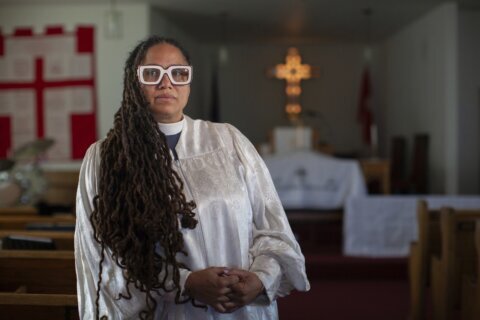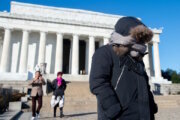BIRMINGHAM, Ala. (AP) — An Alabama university was ordered to pay millions to an Iranian-born cancer researcher in a discrimination lawsuit that said she was was repeatedly called a racial epithet by a colleague, who at one point brandished a gun at her.
A federal jury on Monday decided the University of Alabama at Birmingham should pay Fariba Moeinpour, a naturalized citizen from Iran, $3 million and ordered the colleague to pay her nearly $1 million in compensatory and punitive damages. Moeinpour said that the harassment began almost immediately after she started working in a cancer research lab at the university in 2011.
The lawsuit said employee Mary Jo Cagle was the primary perpetrator of the harassment. The lawsuit also named the University of Alabama at Birmingham and the director of employee relations in the human resources department as defendants, alleging that the school ignored repeated reports of harassment.
“I believe that a person cannot be American if they don’t value human being regardless of race and nationality,” Moeinpour told The Associated Press. But she said that she felt the university and Mary Jo Cagle “did not value that” throughout her employment.
The lawsuit depicted consistent harassment for the nine years that Moeinpour was employed with the university before she was terminated in 2020. Witness accounts and audio recordings that corroborated Moeinpour’s account were presented to the jury throughout the four-year trial.
On one occasion, the lawsuit alleges, Cagle approached Moeinpour and Moeinpour’s daughter in a university parking lot, brandished a pistol and threateningly called her a racial epithet. At least one audio recording presented to the jury included Cagle calling Moeinpour that same slur on a separate occasion.
One witness, a mall security guard, described a similar encounter where Cagle followed Moeinpour and her daughter around the mall and again called them racial epithets.
There were numerous similar other encounters between Cagle and Moeinpour described in the lawsuit.
Lawyers for Moeinpour provided the jury with documentation of Moeinpour’s repeated attempts to flag her harassment with human resources over the years.
The lawsuit said the harassment culminated in 2020 when Moeinpour told the head of the lab, Clinton Grubbs, that she was going to report Cagle to the department chair.
In his office, Grubbs implored Moeinpour not to report Cagle again, according to the suit, and told her that “Cagle was dangerous and that he feared for his own life if he were to have her fired.”
The lawsuit said that Grubbs physically restrained Moeinpour and “to get him off of her, Ms. Moeinpour slapped him.” Grubbs then called the police, who arrested Moeinpour and detained her overnight, according to Moeinpour and the complaint. Five days later, Moeinpour was terminated.
Grubbs and attorneys for Cagle did not respond to emailed requests for comment on Thursday morning.
The jury determined that Cagle acted with “malice and reckless indifference” to Moeinpour’s federally protected rights on the basis of her nationality. The jury also ruled that the university’s decision to arrest Moeinpour constituted “adverse employment action” and prevented her from filing a complaint against Cagle with human resources, which is a federally protected activity.
A campus spokesperson said the University of Alabama at Birmingham is “committed to our values, which include integrity, respect and collaboration, and work to cultivate an environment where all members of our community feel welcome, safe and supported,” but that the school “respectfully disagreed” with the verdict and is “considering next steps.”
Grubbs was not named as a defendant in the federal lawsuit, but Moeinpour filed separate assault charges against Grubbs in Jefferson County state court in June. Moeinpour also filed a separate civil case against Cagle in state court. Both cases are still pending.
___
Riddle is a corps member for The Associated Press/Report for America Statehouse News Initiative. Report for America is a nonprofit national service program that places journalists in local newsrooms to report on undercovered issues.
Copyright © 2024 The Associated Press. All rights reserved. This material may not be published, broadcast, written or redistributed.







